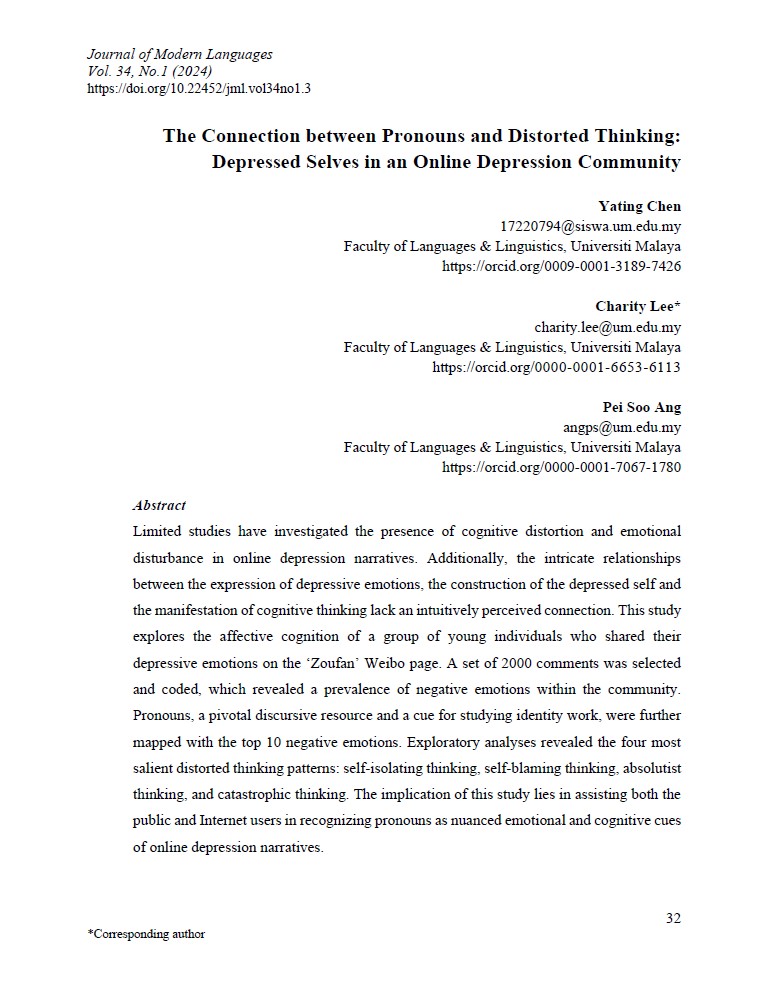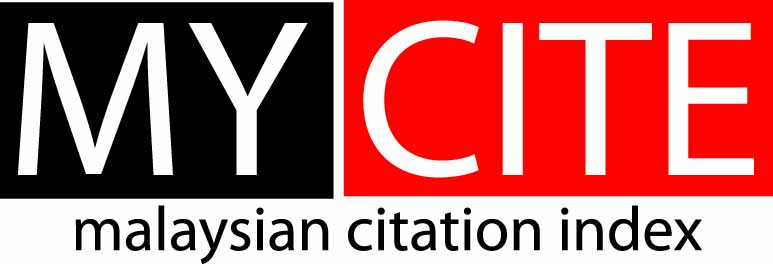The Connection between Pronouns and Distorted Thinking: Depressed Selves in an Online Depression Community
DOI:
https://doi.org/10.22452/jml.vol34no1.3Keywords:
Depressed Self, Affective Cognition, Negative Emotion, Pronouns, Online Depression CommunitiesAbstract
Limited studies have investigated the presence of cognitive distortion and emotional disturbance in online depression narratives. Additionally, the intricate relationships between the expression of depressive emotions, the construction of the depressed self and the manifestation of cognitive thinking lack an intuitively perceived connection. This study explores the affective cognition of a group of young individuals who shared their depressive emotions on the ‘Zoufan’ Weibo page. A set of 2000 comments was selected and coded, which revealed a prevalence of negative emotions within the community. Pronouns, a pivotal discursive resource and a cue for studying identity work, were further mapped with the top 10 negative emotions. Exploratory analyses revealed the four most salient distorted thinking patterns: self-isolating thinking, self-blaming thinking, absolutist thinking, and catastrophic thinking. The implication of this study lies in assisting both the public and Internet users in recognizing pronouns as nuanced emotional and cognitive cues of online depression narratives.
Downloads












